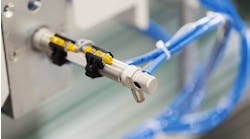editor
[email protected]
Mind experts tell us that we quickly forget most of what we learn. We may be introduced to someone by name, ask them to remind us of their name only moments later, then still not remember their name if we run into them a couple days later.
And what’s interesting is that even though we forget most of what we learn, some stuff sticks. Unfortunately, much of it is useless information. For example, I still know the number of my first driver’s license, and I can recite many commercial jingles that I heard repeatedly over the radio as a teenager. I don’t think you can forget something just because you want to.
Age, of course, is an important factor. When we’re very young, we learn to speak, even though nobody actually teaches us. And once we enter school, we’re able to memorize countless names, dates, places, and learn new concepts. We do, eventually, forget most of this material unless we work in that particular field. That’s a positive aspect of my job. I often deal with math, physics, chemistry, and, especially English — so it’s comforting to put much of what I learned in school into practice.
One reason why we might find it more difficult to remember things as we get older could be because our brains get cluttered with information already committed to memory. I tend to think of it as a computer’s hard drive that needs to be defragmented.
I bring this up because I frequently call on something I learned in an Engineering Economics class at Franklin University more than 30 years ago. I never wanted to take any kind of economics, but it was a required course. Fortunately, the instructor made the class interesting and relevant.
Throughout the course we studied a hypothetical company that made airplanes. What I remember is that the company had orders for 100 airplanes, and each airplane sold for $100,000. Despite the $10 million in orders, the company went bankrupt. Why? Because they weren’t getting any revenue.
Of the 100 planes, ten were 90% complete, 10 more were 80% complete, ten more were 70% complete, and so on. None, however, were complete, so they had no money coming in. Instead of having its workforce work on all the planes, it should’ve focused on getting the ten done that were 90% complete. That would’ve given them money to probably finish the next 20%.
I think this lesson can be applied to projects we work on. In my case, I’m responsible for at least five articles every month. I have to move from one article to another throughout the month while also working on future articles and other projects. Once the monthly deadline approaches, I have to abandon this approach and begin working on one article at a time until it’s finished.
So not all the material we involuntarily commit to memory is clutter. Some of it, like the lesson from economics, can be a benefit for a lifetime.


